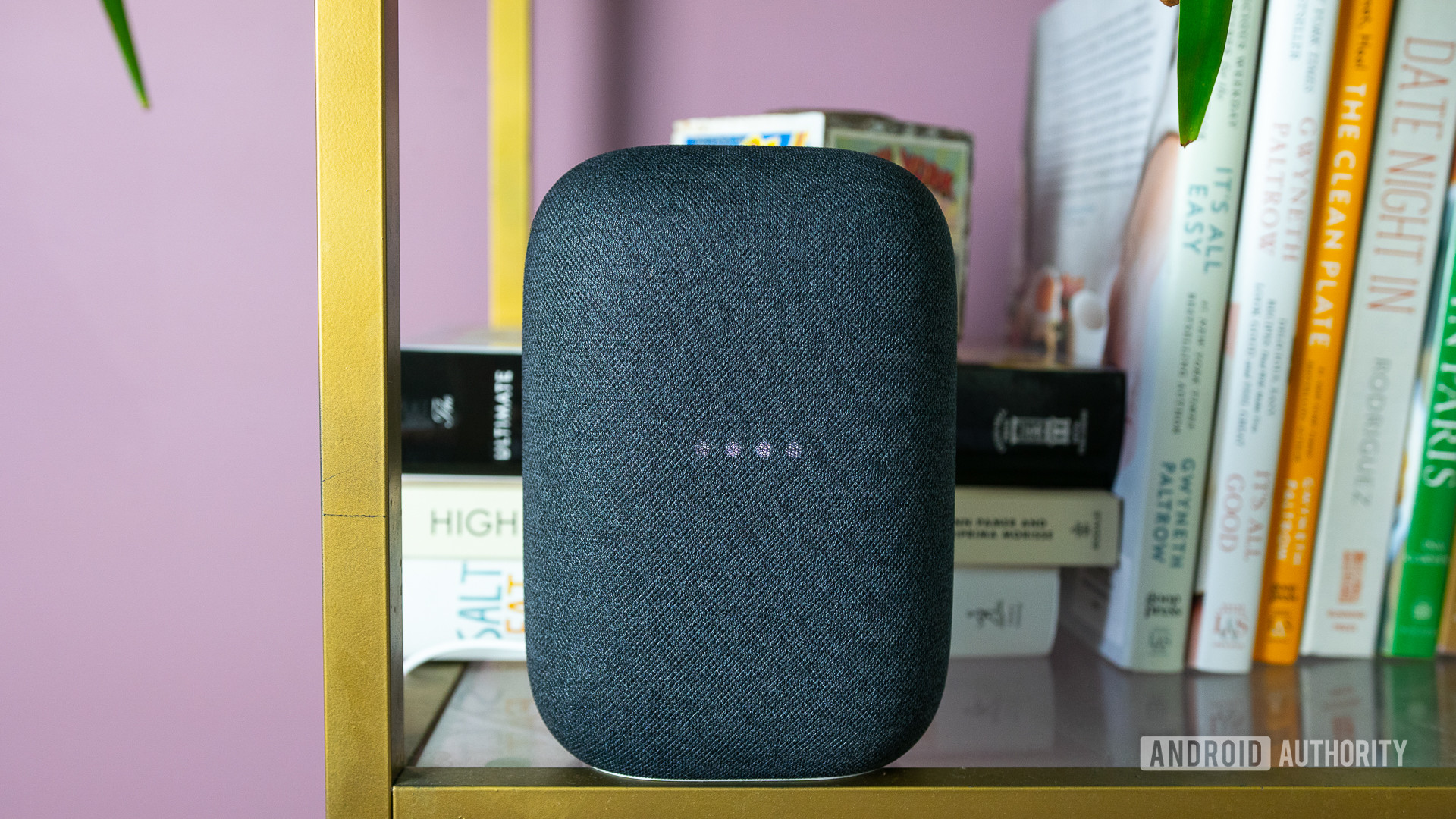Affiliate links on Android Authority may earn us a commission. Learn more.
This is the first setting I change on any Google smart speaker
February 5, 2022

Although many of us have embraced or are starting to embrace smart speakers in our homes, I have to admit that I find the idea of an always-listening device rather peculiar. It’s not paranoia or a general distrust of the technology; if it were, I would immediately remove the speakers from my apartment. But it is the need to be as aware as possible of when these speakers are listening and when they aren’t, and stop them if they start listening when they shouldn’t.
That’s why one of the first things I do after setting up a new speaker (or resetting an older one) is to enable an audible indicator for when it starts and stops listening. The option, which is hidden under the speaker’s accessibility menu, transforms the experience from a guessing game to a more certain one.
To enable it, open the Google Home app, look for the speaker or smart display you’d like to change this setting for, tap it and look for the Settings cog (on the top right) > Accessibility and you should find at least two options there: Play start sound and Play end sound. Toggle both of these on.
Now, when the speaker detects the “OK Google” or “Hey Google” wake words, it’ll play a small chirp to tell you it started listening. It’ll also play a sound when it notices that you’ve stopped talking and thus it stops listening.
It’s such a minor change, but it completely transforms my smart speaker experience:
- I know if my speaker is listening to me even if I have my back turned to it; I no longer need to keep an eye on the LED lights for that.
- I can tell which speakers in my house got triggered by the wake word, and thus anticipate if the one in the other room might answer me. In this case, I lower my voice to favor the speaker that’s closest to me.
- I realize beforehand when the speaker gets accidentally triggered by something similar to its wake word, and says “this wasn’t for you,” to avoid it listening and saving voice recordings when it shouldn’t. That also saves me from any lengthy droning answers it might come up with in response to a question that was never one.
- If the speaker bugs out and stops listening mid-sentence — which still sadly happens more frequently than I’d like — I know that it did. I can then start my query again instead of waiting for an answer that’ll never come.
If you have reservations about smart speakers as a whole, this simple setting won’t change your mind about them. But it’s useful for those who want to feel slightly more in control of their Nest Audio, Nest Hub, or other Google Assistant speaker or display.
Related: Cool things you can do with your Google Home, Nest Audio, or Chromecast
Thank you for being part of our community. Read our Comment Policy before posting.